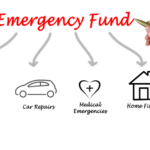Smart Budgeting: Plan Ahead
Creating a comprehensive travel budget is a crucial step for any trip to ensure financial stability and peace of mind. The first step in this process is to thoroughly research your destination. Understanding the cost of living, average prices for accommodation, food, transportation, and activities in your chosen location is essential. Websites like Numbeo and Expatistan provide valuable insights into the cost of living in various cities worldwide, helping you gauge how much you might need to allocate for daily expenses.
Once you have a clear picture of your destination’s cost structure, set a realistic daily spending limit. This limit should encompass all potential expenses, including meals, local transport, sightseeing, and entertainment. A helpful rule of thumb is to allocate around 10-15% of your total budget for unexpected expenses. Whether it’s an unplanned attraction visit, a medical emergency, or a spontaneous splurge, having a buffer ensures that you won’t face financial strain while abroad.
Several tools and apps can make budgeting and expense tracking more manageable. Apps like Trail Wallet, TravelSpend, and Mint allow you to input your daily expenditures and monitor your spending in real-time. These tools offer features such as currency conversion, expense categorization, and budget alerts, ensuring you stay within your predetermined limits. Additionally, setting up a travel-specific bank account can help segregate your travel funds from your regular savings, providing clearer financial boundaries.
The benefits of planning ahead are manifold. Not only does it help avoid the pitfalls of overspending, but it also reduces financial stress, allowing you to enjoy your trip fully. By creating a detailed budget and leveraging modern tools for expense management, you can achieve a balanced and enjoyable travel experience.
Maximize Savings on Flights and Accommodation
Travelers looking to maximize their savings on flights and accommodation can benefit from a variety of strategies. One of the most effective methods is booking flights and accommodation well in advance. Airlines and hotels often offer significant discounts for early bookings, allowing travelers to secure lower prices. Conversely, last-minute deals can sometimes present attractive offers, though this approach requires flexibility and a bit of luck.
Utilizing flight comparison websites, such as Skyscanner, Kayak, and Google Flights, can help travelers find the best deals by comparing prices across multiple airlines. Setting up fare alerts on these platforms ensures travelers are notified when prices drop for their desired routes. Additionally, traveling during off-peak seasons can lead to substantial savings. Off-peak times generally mean fewer tourists and lower prices for both flights and accommodation.
Flexible travel dates can also contribute to significant cost reductions. Many comparison websites feature tools that show the cheapest days to fly within a given month, making it easier to plan trips around the most economical options. For accommodation, choosing budget-friendly options like hostels, Airbnb, and house-sitting can drastically reduce expenses. Hostels offer shared facilities at lower prices, while Airbnb provides a range of cost-effective lodging from private rooms to entire homes. House-sitting, where travelers take care of a homeowner’s property while they are away, can often provide free accommodation in exchange for minimal responsibilities.
Loyalty programs and travel credit cards are valuable tools for earning points and rewards that can be redeemed for free or discounted travel. Many airlines and hotels offer loyalty programs that reward frequent travelers with points for each booking. These points can later be used for free flights, upgrades, or accommodation. Travel credit cards often offer sign-up bonuses, points for everyday purchases, and additional travel-specific benefits such as free checked bags or priority boarding.
Efficient Money Management on the Go
Managing money efficiently is crucial for travelers to ensure a smooth and stress-free journey. One key consideration is the choice between carrying cash and using credit or debit cards. While cash provides immediate access and is widely accepted, it poses risks such as theft and loss. On the other hand, credit and debit cards offer convenience and security, but they might incur foreign transaction fees and may not be accepted everywhere.
To minimize foreign transaction fees, travelers should consider using credit cards that offer no foreign transaction fees. These cards often provide better exchange rates compared to currency exchange kiosks, which tend to charge high fees and offer poor rates. Debit cards can be a good alternative, especially those from banks that reimburse ATM fees or have partnerships with international banks, enabling fee-free withdrawals. Accessing money through local ATMs is generally the most cost-effective method, but it is essential to inform your bank of your travel plans to avoid unexpected card blocks.
Keeping track of expenses in real-time is another critical aspect of efficient money management. Various apps, such as Mint, Trail Wallet, and Expensify, can help monitor spending, set budgets, and categorize expenses. These tools provide a clear overview of your financial status, helping you stay within your budget and avoid overspending.
Safety is paramount when managing money on the go. Protecting your financial information involves using RFID-blocking wallets to prevent electronic pickpocketing, avoiding public Wi-Fi for financial transactions, and enabling two-factor authentication on banking apps. Additionally, carrying a backup credit card and a small amount of emergency cash in a separate location can be a lifesaver in case of theft or loss.
By carefully choosing the right combination of cash and cards, utilizing fee-minimizing strategies, and leveraging technology for expense tracking, travelers can manage their money effectively and enjoy a worry-free journey. Prioritizing safety measures further ensures that your financial information remains secure while exploring new destinations.
Utilize Technology to Save Money
In the modern era of travel, leveraging technology is a crucial strategy for saving money. Numerous travel apps are designed specifically to offer discounts on food, attractions, and transportation, making it easier for travelers to manage their expenses. Apps like Hopper, Skyscanner, and Kayak can help you find the best deals on flights and accommodations, ensuring you get the most out of your budget.
Furthermore, tools such as TripAdvisor and Yelp can guide you to affordable dining options and local deals. These platforms often feature user reviews and ratings, allowing you to make informed decisions about where to eat without breaking the bank. Similarly, apps like Citymapper and Google Maps can provide cost-effective transportation options, helping you navigate public transit systems efficiently and avoid expensive taxi rides.
For those looking to explore their destination without spending a fortune, there are apps like Meetup and Couchsurfing that connect travelers with locals or other tourists for free or low-cost activities and experiences. These tools can introduce you to community events, free concerts, and volunteer opportunities, enriching your travel experience without the financial burden.
Communication apps also play a significant role in reducing travel costs. Services like WhatsApp, Skype, and Viber allow you to stay in touch with friends and family without incurring hefty international call and data charges. By utilizing Wi-Fi hotspots, these apps enable you to share your travel adventures and coordinate plans with ease.
Social media platforms and travel forums are treasure troves of money-saving tips and advice from seasoned travelers. Engaging with communities on Facebook, Reddit, or dedicated travel forums can provide insights into budget-friendly itineraries, hidden gems, and local customs that can help you stretch your travel budget further.
Ultimately, technology has revolutionized the way we travel, making it more affordable and convenient. By integrating these tools into your travel planning, you can ensure a more enjoyable and cost-effective journey.


